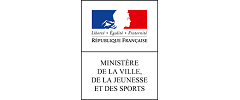The Gender Dimensions of Hazardous Substances and Waste
WECF and Indonesian partner Balifokus organised stakeholder forum on how to address POPs and how to protect women and men from banned hazardous chemicals
28.02.2017 |

Christine, working mom from Indonesia collected 10,000 signatures, calling to ban anti-lice oil peditox with ingredient Lindane, the POPs made her child ill
WECF and its Indonesian partner, Balifokus, organised a Stakeholder forum in Jakarta on the 23rd of February. Participants included the Ministries of Environment and Health, the National Food and Drug Agency, the National LIPI Scientific Institute’s POPRC expert, the WHO, the industry association, the breastfeeding association, the teachers association, the trade unions, the pesticide action network, the ban-lindane-lice-oil campaign, an EDC action group, a medical expert on NDCs and journalists of Kompass and Jakarta Post
Banned hazardous chemicals found in many places
An expert of the national science institute, LIPI, presented the list of banned hazardous chemicals under the Stockholm Convention, the so-called Persistent Organic Pollutants (POPs). LIPI explained where they are found in Indonesia and who is likely being exposed. Several studies exist for the Government, including those which found 100 times higher level of POPs flame-delays in the commercial part of Jakarta than in other parts, as well as Dioxins around the largest waste dumpsite and DDT contaminated soil in residential areas in Bogor. The new POPs and their multiple consumer product sources were especially an eye-opener for everyone, considering that they exist in most furniture, synthetic floorings and fire-fighting foams. Additionally, there will soon be other POPs that will be added, including those used in non-sticky frying pans.

Indonesian Breastfeeding Mothers Association survey among 1000 members: 74% are not aware harmful chemicals in our bodies can contaminate children
Mercury in cosmetics, illegal pesticides
The Food authority also explained that there are many cosmetics with forbidden ingredients, including mercury, which are unlabelled so that consumers do not know what they are using. They have created a hotline and website to inform consumers and ask to help identify companies that sell harmful cosmetics. The ministry also reported on informal/illegal imports of pesticides from India and China regarding e-waste and plastic waste.
During the break-out groups, best practices and proposals for how to address POPs were discussed. In particular, how to mobilise women and men through strengthening existing initiatives, such as the waste-scavenger association, the breast-feeding women organisation, the pesticide action groups, the women farmer NGOs, toxic-free groups and the trade unions working for occupational health.
"Recycling" of e-waste
WECF and Balifokus also visited the largest waste dump in Indonesia and spoke to several women and men scavengers, as well as visited sites where e-waste cables, hospital waste, and where plastic and styrofoam are “recycled,” a very harmful process creating many POPs from open burning of PVC plastics.
All #waste scavenger families living in the largest waste-dump area keep #chicken, but the eggs must be very polluted, would need test #POPs pic.twitter.com/HvoBTOFaoY
— WECF international (@WECF_INT) February 24, 2017
Related News
Human Biomonitoring for Europe
Vienna, 26 September: stakeholder forum
28.09.2018
A life without plastic, wouldn't it be fantastic?!
Interview with Charlotte Schueler of @PlastikfreiLeben, who lives a zerowaste life in Munich, Germany and shares her experiences to her 25.2 thousand followers on instagram & 37.2 thousand followers on facebook
14.09.2018
Recycling contaminates plastic children’s toys with toxic chemicals from electronic waste
A new global survey finds that recycling plastics containing toxic flame retardant chemicals found in electronic waste results in contamination of the world’s best-selling toy: The Rubik’s Cube.
20.04.2017
The Gender Dimensions of Hazardous Substances and Waste
WECF and Indonesian partner Balifokus organised stakeholder forum on how to address POPs and how to protect women and men from banned hazardous chemicals
28.02.2017
“Neither the SAICM Secretariat nor the governments wanted to have EDCs prominently highlighted at the conference”
WECF addresses endocrine disrupting chemicals at SAICM’s 4th Session of the International Conference on Chemicals Management (ICCM4)
10.11.2015 | Carmen Chan





































